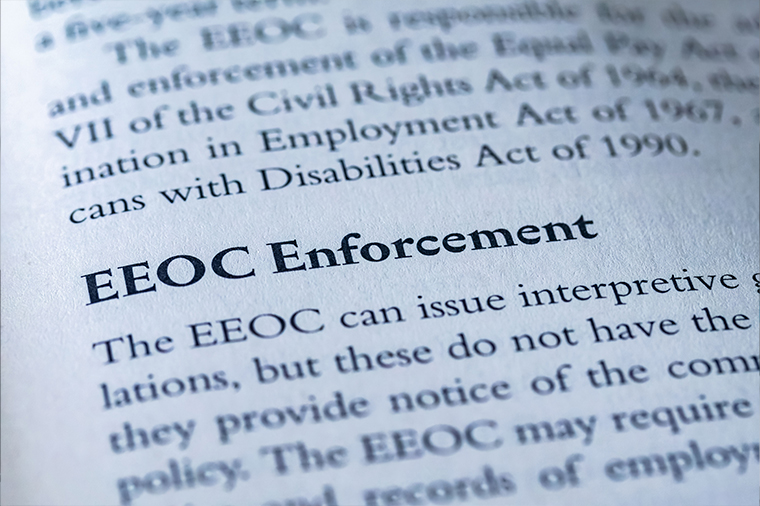EEOC Files Lawsuits Against 15 Employers for Alleged Failure to Submit EEO-1 Component 1 Data
The Equal Employment Opportunity Commission (EEOC) has taken significant legal action, as EEOC files lawsuits against 15 employers across various sectors for their alleged failure to submit EEO-1 Component 1 data. This enforcement action underlines the EEOC's commitment to ensuring compliance with federal employment equality standards.
Overview of EEOC Legal Actions
EEOC files lawsuits against these employers after they reportedly failed to comply with the mandatory EEO-1 Component 1 reporting requirements, which involve submitting employment data categorized by race/ethnicity, gender, and job category. This data is crucial for the EEOC’s efforts to identify and address employment disparities and is a legal requirement for employers meeting certain criteria regarding size and contract status with the government.
Implications of the Lawsuits
The legal action taken by the EEOC sends a strong message about the importance of compliance. Each case where EEOC files lawsuits against employers serves as a reminder of the legal obligations companies have and the seriousness with which the EEOC views these reporting requirements. Failure to comply can result in legal actions that might include fines, penalties, or other enforcement actions.
Details on the EEOC's Legal Strategy
In each instance where EEOC files lawsuits against employers, the commission seeks to enforce compliance through the courts, thereby ensuring that all employers adhere to the regulations designed to promote a fair and equal workplace. These lawsuits are not just punitive; they are part of a broader EEOC strategy to improve overall compliance with employment equality laws.
Reactions from the Business Community
The news that EEOC files lawsuits against 15 employers has stirred discussions within the business community about the need for heightened awareness and better compliance practices regarding EEO-1 reporting. Employers are being urged to take this development as a cue to review their own data submission practices and ensure they are in full compliance to avoid similar legal challenges.
EEOC's Commitment to Enforcement
The EEOC’s decision to file lawsuits aligns with its ongoing commitment to enforce federal employment laws rigorously. Each lawsuit filed by the EEOC emphasizes the agency’s dedication to upholding the law and addressing non-compliance proactively.
Future Outlook
With EEOC filing lawsuits against these employers, other companies are likely to take notice and possibly bolster their compliance frameworks to avoid similar legal scrutiny. The EEOC continues to monitor compliance and is expected to take similar actions in the future if employers fail to meet their reporting obligations.
The Equal Employment Opportunity Commission's (EEOC) recent legal initiative where it files lawsuits against 15 employers marks a significant step in its enforcement of federal employment regulations. The agency's decision emphasizes the seriousness with which it views the obligation of employers to submit EEO-1 Component 1 data, which plays a crucial role in the EEOC’s efforts to oversee and promote equality in the workplace.
Importance of EEO-1 Component 1 Data
EEO-1 Component 1 data is a critical tool used by the EEOC to collect demographic workforce information from employers with more than 100 employees and federal contractors with more than 50 employees and a contract of $50,000 or more. The data, which includes information about employee race, ethnicity, sex, and job categories, helps the EEOC to conduct analyses aimed at identifying discriminatory practices and enforcing federal prohibitions against employment discrimination. The failure of these 15 employers to submit their data undermines the EEOC’s ability to perform these essential functions.
Legal and Regulatory Framework
The authority of the EEOC to require the submission of EEO-1 Component 1 data comes from Title VII of the Civil Rights Act of 1964, which empowers the agency to gather data that is relevant to the law's enforcement objectives. When the EEOC files lawsuits against employers, it is enforcing these statutory requirements, stressing the legal obligation that companies have to comply with these regulatory measures. The legal actions undertaken are not merely punitive but serve to reinforce the framework that supports fair employment practices across all industries.
Responses and Recommendations for Employers
The recent announcement that the EEOC files lawsuits against 15 employers should serve as a wake-up call to all entities covered by EEO-1 reporting requirements. Legal experts and HR professionals recommend that employers not only ensure compliance with EEO-1 submissions but also establish regular audits of their internal processes to safeguard against potential reporting oversights. Implementing thorough training programs for HR personnel regarding EEOC regulations and the importance of EEO-1 data can further mitigate risks of non-compliance.
The Broader Implications for Workplace Equality
The proactive stance the EEOC is taking, evidenced by the fact that it files lawsuits against multiple employers, highlights its commitment to ensuring workplace equality. By enforcing compliance with EEO-1 reporting, the EEOC helps create transparency in employment practices and provides itself with the data necessary to address systemic discrimination. This not only aids in individual cases but also fosters an environment where equal opportunity employment is more likely to become a realized standard.
Economic and Social Consequences of EEOC Actions
When the EEOC files lawsuits against employers, it also brings to light the potential economic and social consequences of failing to comply with federal employment laws. For companies, the costs are not just related to penalties or legal fees; there are also potential damages to their reputation, which can affect their market position and relationships with stakeholders. Socially, these lawsuits serve as public reminders of the importance of corporate responsibility in fostering a fair and inclusive workforce, echoing across industries and influencing public perception and policies.
Future Trends in Employment Law Enforcement
The fact that the EEOC files lawsuits against these employers is indicative of a larger trend towards increased enforcement of employment equality laws. As the workplace continues to evolve, particularly with increasing diversity and inclusion initiatives, the role of data in enforcing and shaping these initiatives becomes even more significant. Looking forward, it is likely that the EEOC will continue to enhance its monitoring and enforcement mechanisms, potentially adopting more sophisticated technologies to track compliance and gather necessary data more efficiently.
Impact on HR Practices
HR departments across the country must take note of the EEOC's renewed focus on EEO-1 data compliance. When the EEOC files lawsuits of this nature, it signals the need for all HR practices to be aligned with federal regulations. Companies should look to integrate compliance into their strategic planning processes, ensuring that data submission is accurate, timely, and a regular part of their operational procedures.
Role of Legal Advisors and Consultants
In response to these legal actions where the EEOC files lawsuits, many companies may seek to work more closely with legal advisors and consultants. These professionals can provide the necessary guidance and expertise to navigate the complexities of EEO-1 reporting and ensure that companies are not only compliant but are also proactively addressing any potential gaps in their employment practices.
Conclusion
The decision by the EEOC to file lawsuits against 15 employers is a clear demonstration of its dedication to upholding the laws designed to ensure fair and equal treatment in the workplace. This action should remind all employers of the critical importance of complying with all EEO-1 reporting requirements and the broader implications of these obligations. As the agency continues to enforce these laws, employers must remain vigilant in their efforts to comply with federal standards, thereby contributing to a more equitable and inclusive employment landscape.




